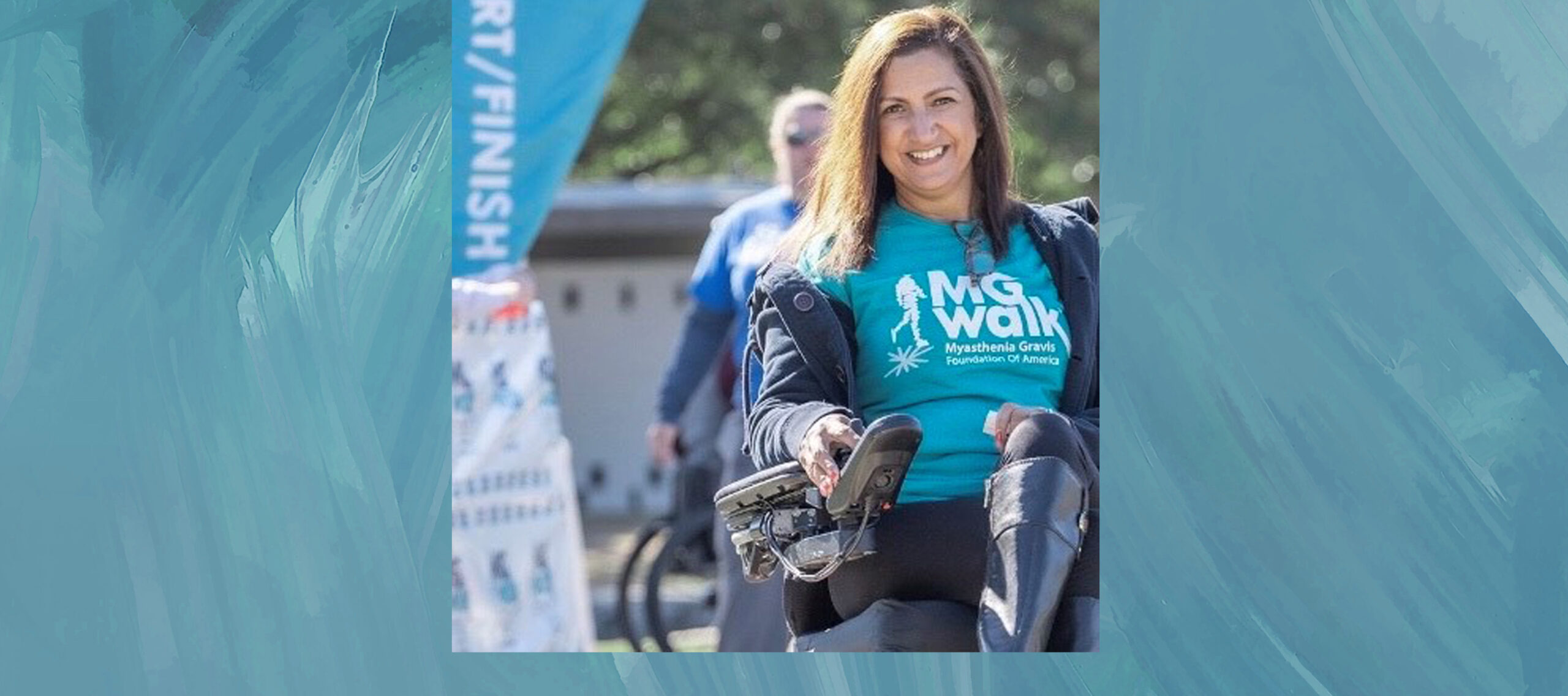I was diagnosed with Myasthenia Gravis in 2014. It took a lot of work to get diagnosed, for treatment to work, and to finally regain my independence.
I have daily challenges living with myasthenia gravis, but I persevere because there’s hope.
We’ve come a long way after many years of working to bring awareness about this fickle disease. We can’t do this alone. As a support group leader, I have learned that it takes a community to help keep our spirits up, and for our caregivers to forgive us for the days we just need to rest.
My children were affected by this condition because they lost out on some of their time with me. Nevertheless, as a mother my goal was to always stay positive and strong for them. My husband still worries about me because the initial diagnosis gave him trauma. Yet his strength and love has been so consistent and everlasting for me as I continue this journey of fighting for a better quality of life.
As time passed and I have responded well to treatment, I’m gaining back my life, and I’m slowly beginning to make up for lost time. Not just with my family, but for myself, in living my best life now. I’ve returned to work, I’m traveling again, and even furthering my education.
However, my quest to bring resources and knowledge to those who have been diagnosed with myasthenia gravis stays firm. As others have supported me in my journey, I will always pay it forward in supporting everyone from those who are newly diagnosed to veteran myasthenia patients.
It’s important for other people who don’t have myasthenia gravis to remember not to judge. Don’t mistake our fatigue and no-shows for inconsideration. Often our lives are vague, because we really are living our symptoms one day at a time.
One day I can be up and a few hours later I can be down, tired, and just needing to rest. If I am not participating, it’s because I’m resting to conserve energy so I can share moments later.
There’s still a lot more awareness needed about myasthenia, especially in the medical community. Not all physicians know how to treat myasthenia gravis. Treatment is not one size fits all.
Caregivers must be supported because often they carry the load when we cannot.
I’m excited for my future with myasthenia gravis. I can only see further improvement as new treatments are introduced.
My biggest hope is that one day, every person with myasthenia can receive optimal treatment targeting all antibodies.
Meena Outlaw leads an MGFA Support Group in Houston, Texas.

